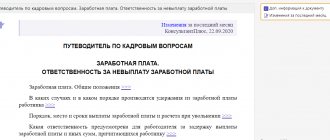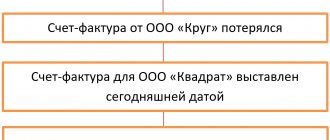Many citizens throughout their lives have a desire to provide selfless help to those in need. People create charities or sponsor existing ones. The state, in turn, encourages and stimulates society by developing appropriate support measures for those who help. One of them is a tax deduction for charity, which allows citizens to reimburse part of the funds spent on donations.
Tax deduction for charity: size, documents, example, deadlines
Tax deduction for education
In this case, the size of the benefit depends on factors such as:
- Amount of expenses;
- Paid tax.
The maximum educational expense from which you can receive a refund “for yourself” or your immediate family is 120,000 rubles per year. In the case of a child or ward - 50,000 rubles.
By the way, at the same time the payer can receive two types of deductions at once - both “for himself” and for the child. However, it must be taken into account that the tax refund cannot exceed the amount of taxes paid for the year. It is possible to receive a refund “for yourself” with any form of study, but with children and relatives - only with full-time study.
Amount and calculation of compensation
The citizen is reimbursed 13% of charity expenses if the conditions established by the legislation of the Russian Federation are met.
Tax deductions are calculated according to schemes similar to other types of deductions.
To determine the amount of possible compensation, you need to know the person’s income and the amount of deductions made from it to the state and for gratuitous support to those in need. When calculating, data for the calendar year is taken into account.
Conditions for calculating benefits:
- the refund must not exceed the amount of the transferred tax;
- The amount to be reimbursed is not calculated in excess of 25% of income for the year.
It should be noted that the 25% limit is assumed not for each type of charitable support, but for their totality.
Example 1
In 2021, a citizen transferred 20 thousand rubles for charitable purposes. His income for the year is 250 thousand rubles. Since the amount of transfers is not higher than 25% of this amount (250 thousand * 25% = 62,500 rubles), the tax deduction for charity issued by a citizen in 2021 is 2,600 rubles (20 thousand * 13%).
Example 2
In 2021, a person donated 100 thousand rubles to a charitable organization. His income for the year is 300 thousand rubles. Since the amount of support is higher than 25% of the specified amount (300 thousand * 25% = 75 thousand rubles), a citizen cannot apply for full coverage. The maximum possible amount is 75 thousand rubles. In 2021, the citizen will receive compensation: 75 thousand * 13% = 9750 rubles.
Example 3
In 2021, a person donated 40 thousand rubles to charitable purposes to protect nature and 70 thousand rubles to protect health. His annual income is 320 thousand rubles. Since the total amount of assistance (110 thousand rubles) is higher than 25% of income (80 thousand rubles), a citizen cannot apply for full coverage. In 2021, he will receive a deduction of 80 thousand rubles, hence the compensation will be 10,400 rubles (80 thousand * 13%).
ATTENTION! If funds for charitable purposes for which a refund was made are returned to the benefactor, the amount of the deduction must be entered in the 3-NDFL declaration for the year in which the return was recorded.
Example 4
In 2021, a citizen donated 50 thousand rubles to charity. In 2021, he received a full tax refund (50 thousand * 13% = 6500 rubles). But this same year the funds were returned. Now, in 2021, a citizen must add the amount of compensation to his income (50 thousand) and return personal income tax (6,500 rubles).
According to Article 219 of the Tax Code, at the level of constituent entities of the Russian Federation it is possible to increase the maximum deduction amount to 30% of taxable income. Donations are aimed at supporting cultural institutions and non-profit structures. The list of such organizations is established by the law of the subject of the Russian Federation.
Tax deduction for treatment
Benefits for treatment also exist, and not only for those who own the “cherished” certificates of a combat veteran or a pension certificate. Moreover, you can receive a deduction not only for yourself, but also for services provided to children, parents or spouse.
True, receiving such a benefit is possible only if the medical institution is included in the list approved by the Government. In addition, checks and receipts must be available.
The threshold amount is still the same 120,000 rubles, but can be increased if expensive treatment was paid for, for example, organ transplantation or prosthetics.
In what cases can you not apply for a deduction for charitable expenses?
Based on the conditions for obtaining a deduction, as well as a number of other norms of tax legislation and established practice, it is useless to apply for benefits in the following cases:
- The funds were transferred directly to the individual. This restriction was introduced by the Tax Code due to the fact that such charity is easy to fabricate, while charitable organizations report the funds received on a regular basis.
- When transferring money or other property to funds that do not themselves belong to organizations engaged in charitable or other socially oriented activities. Similar situations may arise when transfers are made not directly to the specified types of organization, but to funds established by them.
- The person did not fulfill one of the conditions specified in the previous section. Thus, the reason for refusal to provide may be the establishment of the fact of compensation of the contract (if it provides for a counter-obligation of the recipient) or the lack of supporting documents.
Also, for obvious reasons, it will not be possible to issue a deduction for those who are not payers of personal income tax in the Russian Federation. In the absence of a taxable base as such, no deduction is applicable.
Tax deduction for non-state pension provision
What are non-state pension funds, a pension co-financing program and why they are not yet in demand, AllKredits has already discussed in the material: “Non-state pension fund: what is it and why is it needed?”
Now about the deductions themselves, which can be obtained if the payer has contracts:
- Non-state pension provision with non-state pension funds;
- Voluntary pension insurance;
- Life insurance – provided that the contact is concluded for at least 5 years.
Like previous benefits, this one can be obtained not only for your benefit, but also for the benefit of your parents, spouse and children. And the maximum deduction amount remains 120,000.
Procedure for applying tax deduction for charity
is prescribed in paragraphs.
1 clause 1 art. 219 “Social tax deductions” of the Tax Code of the Russian Federation (part two) dated 08/05/2000 No. 117-FZ (as amended on 02/15/2016). According to this article of the Tax Code of the Russian Federation, if you donated money from your official income to charity,
then you can take advantage of the right to a tax deduction or, more simply put, get back part of the donated money.
As you already know from my material “What is a tax deduction: Who can get it and how”, a tax deduction is a part of income that is not taxed.
Therefore, you can get a tax refund on your donations. That is, if you officially work and, accordingly, pay personal income tax (personal income tax) and incur expenses for charity, then you can get back part of the money spent in the amount of up to 13% of the donation amount.
What happens that you can donate any money for any need and then reimburse the costs by simply defining all transfers as charity?
No. The Tax Code clearly states where exactly you can transfer charitable amounts if you are counting on a tax deduction for charity in the future.
In what cases can you get a tax deduction for charity?
In the above paragraph 1 of Art. 219 “Social tax deductions” of the Tax Code of the Russian Federation defines organizations that can receive a tax deduction when providing charitable assistance.
These include:
- officially registered charities;
- socially oriented non-profit structures;
- non-profit organizations engaged in scientific, cultural, physical education and sports activities, as well as education and awareness;
- Priority is also given to organizations involved in social and legal protection and support of the population, environmental protection and animal protection;
- religious organizations, if donations are transferred to their main statutory activities;
- non-profit structures for the formation or replenishment of their target funds.
Examples of obtaining a tax deduction for charity
Example 1. In 2015, citizen T. provided financial assistance to a charitable organization for the treatment of children. At the end of the year, she filed a declaration in Form 3-NDFL with the tax office and received a tax deduction for charity.
Example 2. In 2015, citizen P. made a monetary donation to a religious organization for statutory purposes. At the end of the year, he filed a 3-NDFL declaration with the tax office and received a tax deduction for charity.
Example 3. Citizen K. provided charitable assistance to a city football club. According to paragraph 1 of Art. 219 of the Tax Code of the Russian Federation, when providing charitable assistance to non-profit organizations of professional sports, a tax deduction cannot be claimed, so she was not able to exercise the right of a tax deduction.
Example 4. Citizen D. donated money to the non-profit organization “Development of Science and Education” and to a low-income individual. He can claim a tax deduction for charity only in the amount of a donation to the non-profit organization “Development of Science and Education,” since a tax deduction is not provided when donating to another person.
Amount of tax deduction for charity
The amount of tax deduction for charitable expenses is calculated for the calendar year and is determined by the following factors:
- you cannot return in the form of a tax deduction more money than was transferred to the income tax budget (about 13% of the official payment);
- you can return up to 13% of expenses for charity, but the maximum amount of expenses that can be used for tax deduction is limited to 25% of annual income (paragraph 7, paragraph 1, clause 1, article 219 of the Tax Code of the Russian Federation). Accordingly, the maximum tax refund amount is
13% x 25% x Annual income;
- the limit of 25% of income received is not applied to each type of expenditure on charity and donations, but to all in total for the year.
Example 5. In 2015, citizen I. donated 30 thousand rubles to a children's city hospital, while his taxable income for the year will be 200 thousand rubles. Since the donation amount does not exceed 25% of the income (30,000 < 200,000 x 25%), he has the right to claim a tax deduction in the amount of the donation. In 2021, citizen I. can submit a declaration to the tax authority and return 30,000 x 13% = 3,900 rubles.
Example 6. In 2015, citizen L. donated money to the Children charity organization in the amount of 70,000 rubles. Taxable income for the year amounted to 250,000 rubles. Since the donation amount exceeds 25% of the annual income (RUB 70,000 > RUB 250,000 x 25%), a tax deduction can only be claimed in the amount of RUB 250,000 x 25% = RUB 62,500. In 2021, citizen L. has the right to submit a declaration to the tax office and return 62,500 x 13% = 8,125 rubles.
Example 7. In 2015, citizen F. donated 50,000 rubles to a non-profit organization for the protection of nature. and 80,000 rub. for the benefit of a charitable organization. The annual taxable income for the year of citizen F. amounted to 360,000 rubles. The total amount of donations exceeds 25% of income for the year (50,000 + 80,000 > 360,000 x 25%). Therefore, at the end of 2015, citizen F. was able to claim a tax deduction in the amount of 90,000 rubles. (360,000 x 25%) and return tax in the amount of 90,000 x 13% = 11,700 rubles.
Attention. If for some reason the donation for which a tax deduction was received is returned, then the amount of the tax deduction must be included in the tax return for the period when the return was made (paragraph 8, paragraph 1, clause 1, article 219 of the Tax Code of the Russian Federation) .
Example 8. In 2014, citizen V. donated 40,000 rubles to a religious organization. In 2015, he filed a return with the tax office and received a tax deduction for charitable expenses in full (he returned a tax of 40,000 x 13% = 5,200 rubles).
However, the donation was later returned in 2015. At the end of 2015, Citizen V. had to submit a declaration to the tax office at the place of permanent registration and include the amount of the tax deduction of 40,000 rubles. to your income, as well as return a tax in the amount of 13% of the tax deduction amount (5,200 rubles).
Is it possible to get a tax deduction for charity if the charity was not provided with money?
According to experts, a donation is recognized as the donation of a thing or right for generally beneficial purposes (Part 1 of Article 582 of the Civil Code of the Russian Federation). The concept of a thing includes money, securities, and other property, including property rights (Article 128 of the Civil Code of the Russian Federation).
Accordingly, a donation can be made either by transferring money or by transferring any property (car, office equipment, etc.). Moreover, since the Tax Code of the Russian Federation does not limit the right to a social deduction (and a tax deduction for charity is a type of social deduction), only in the form of a monetary donation, a tax deduction for charity can also be obtained when providing assistance with property.
Letter of the Ministry of Finance of Russia dated December 30, 2013 No. 03-04-08/58234.
What documents are needed to apply for a tax deduction for charity?
To apply for a tax deduction for charity you will need:
- identification document;
- declaration 3-NDFL and application for tax refund;
- documents confirming your expenses for charity;
- documents confirming the paid income tax (certificate 2-NDFL).
When do you need to submit documents and for what period can you receive a tax deduction for charity?
Charitable expenses can only be refunded for the years in which the expenses were directly incurred.
However, you can file a tax return and return the money only in the year following the year of charitable expenses. That is, if the donation was made in 2015, then the money can be returned only in 2021.
If the tax deduction was not issued immediately, then this can be done later, but no more than for the last three years.
For example, if charitable assistance was provided in 2011-2014 and a tax deduction was not received, then in 2015 you can return the tax only for 2012, 2013, 2014 (the tax refund period for 2011 has already passed).
Example 9. In 2011 and 2014, citizen S. made a monetary donation to a charitable organization for the education of orphans. If a 3-NDFL declaration is submitted to the tax office in 2015, he can receive a tax deduction only for charity expenses for 2014. For 2011, the tax deduction will remain unused, since more than 3 years have passed.
The entire procedure for obtaining a tax deduction usually takes from two to four months (most of the time is spent checking documents by the tax office).
Attention. If the tax deduction for charitable expenses was not used in full in the current year, then it will not be possible to carry over the remainder to the next year. It will never be used.
Letter of the Federal Tax Service of Russia dated August 16, 2012 No. ED-4-3/13603.
Example 10. In 2015, citizen S. donated 20,000 rubles to an animal protection fund. His taxable income for the year will be 30,000 rubles, and the income tax paid will be 3,900 rubles.
Since the donation amount exceeds 25% of citizen S.’s income (20,000 > 30,000 x 25%), he can claim a tax deduction of 30,000 x 25% = 7,500 rubles.
In 2021, he can submit a tax return to the tax authority and return 7500 x 13% = 975 rubles. Balance of 20,000 – 7,500 = 12,500 rubles. Citizen S. cannot receive additional funds during other periods.
If you have any questions about the violation of your rights, or you find yourself in a difficult life situation, then an online duty lawyer is ready to advise you on this issue for free.
TAXES AND TAX DEDUCTIONS
Tax deduction for charity
Doing charity work in our country is a troublesome business and does not provide the same benefits as in the West. But the world is not without good people. Moreover, the tax benefit in this case amounts to as much as 25% of the taxpayer’s income.
Charity will be considered those amounts that were sent in the form of monetary assistance to:
- Charity organisations;
- Non-profit organizations (NPOs) with a social orientation;
- NGOs working in the fields of culture, sports, science, education, healthcare, etc. – the full list can be found in paragraph 1 of Art. 219 Tax Code of the Russian Federation;
- Religious organizations.
However, the benefit may be denied if the money was transferred not directly, but through third-party funds. In addition, the reason for refusal may be the benefit received through charity.
Is it possible to get a deduction if charity is not provided with money?
In our opinion, a donation is recognized as the donation of a thing or right for generally beneficial purposes (Part 1 of Article 582 of the Civil Code of the Russian Federation). The concept of a thing includes money, securities, and other property, including property rights (Article 128 of the Civil Code of the Russian Federation). Accordingly, a donation can be made either by transferring money or by transferring any property (car, office equipment, etc.).
Since the Tax Code of the Russian Federation does not limit the right to a social deduction only in the form of a monetary donation, a deduction can also be obtained when providing assistance with property. This conclusion is confirmed by Letter of the Federal Tax Service of Russia dated November 16, 2015 No. BS-4-11/ [email protected] , Letter of the Ministry of Finance of Russia dated December 30, 2013 No. 03-04-08/58234.
“Magic” 120,000 rubles
And finally, I would like to note one fact that for some reason is not mentioned in most of these materials. Probably, the thoughtful reader paid attention to the same amount, which is the maximum threshold for all social deductions, except for charity.
Let us reveal one significant nuance - this is not a similar amount, but the same amount. That is, deductions for training, treatment and non-state pension provision cannot be calculated from more than 120,000 in total.
A simple example - let’s say the payer spent the following in a year:
- 30,000 – for training;
- 50,000 – for treatment;
- 60,000 – for additional pension provision.
As a result, the expenses amounted to 140,000 rubles, but he will be able to receive a deduction only based on the maximum total amount of expenses - 120,000 rubles. And in this case it will be equal to 13% of this amount - that is, 15,600 rubles. A citizen can receive it in his hands per year.
You can only get more if the treatment was expensive. There are simply no other options. Nevertheless, saving 15,000 a year is also a good bonus that can be spent on something important, for example, not once again denying your child a new phone or toy.
The concept of charity and legal aspects
According to Federal Law No. 135 of August 11, 1995 (as amended on December 18, 2018), charity is considered free and voluntary assistance to those in need. It can be in the form of donations, provision of services, transfer of property, and so on. The law determines the legal regulation of charitable activities, forms of its support and stimulation by the state. Such measures include tax optimization. For enterprises helping charitable organizations, VAT benefits are provided. Since 2016, such activities have been exempt from taxation if carried out for purposes specified by law.
Benefits from the state are also provided for individual philanthropists. According to Article 219 of the Tax Code of the Russian Federation, a citizen has the right to return part of the donations made.
ATTENTION! A mandatory requirement for assigning a refund is the presence of deductions from the citizen’s income to the state budget.
By paying personal income tax and making donations, a person has the right to receive a refund of up to 13% of the amount of assistance provided. The deduction for charity is considered a social deduction and is aimed at reducing the taxable portion of income.
Video - What is a charitable deduction?
How to get a social tax deduction?
Well, firstly, you can only get it after filing a tax return, that is, in “next year.” In this case, the form of receipt can be either a real return of funds to the payer’s current account through the “native” Federal Tax Service, or a tax benefit - that is, less withholding of income tax.
In both the first and second cases, expenses will have to be confirmed with checks, receipts and contracts for receiving services. In addition, it is necessary to study or receive treatment only in accredited institutions with a license. Surely no one will pay a “refund” for teaching a child karate in a private section located in the nearest school gym.
The same applies to medical institutions. It is unlikely that you will receive a deduction for the services of a traditional medicine clinic, where white magicians restore karma with the help of young wheat sprouts and corn cobs.
Personal income tax refund
You can return personal income tax for the year in which the donations were made. If a person has not done this, then you can apply for a deduction for another three years. This procedure is established by paragraph 7 of Article 78 of the Tax Code of the Russian Federation.
Situation: within what period must inspectors return overpaid personal income tax to a person who has the right to a social deduction for expenses in the form of donations?
The inspectorate must return the overpaid tax within one month from the day the person submitted the application for a refund (Clause 6, Article 78 of the Tax Code of the Russian Federation). Its form was approved by order of the Federal Tax Service of Russia dated March 3, 2015 No. ММВ-7-8/90.
However, before returning personal income tax, the tax office has the right to conduct a desk audit of the declaration in Form 3-NDFL.
The inspection period is three months (clause 2 of Article 88 of the Tax Code of the Russian Federation). Thus, the maximum period during which the tax office must return overpaid tax is four months (from the date of filing the declaration).
This point of view is confirmed by the letter of the Ministry of Finance of Russia dated December 27, 2005 No. 03-05-01-05/233.
If the deadline for the return of personal income tax (established in clause 6 of Article 78 of the Tax Code of the Russian Federation) is violated, the person has the right to demand payment of interest for the delay in tax refund. Interest is calculated based on the refinancing rate in effect on the days the repayment deadline was missed. Such rules are established by paragraph 10 of Article 78 of the Tax Code of the Russian Federation.
After the inspection receives the declaration and documents confirming the right to deduction, it will check them (Article 88 of the Tax Code of the Russian Federation). This operation will allow you to determine the overpaid amount of personal income tax, which will be returned to the applicant-citizen’s bank account.
Common mistakes
Error: confusion in the concepts of tax deduction and refund of overpaid personal income tax.
In the first case, this is the amount from which income tax is not withheld. In the second - an amount of money that the taxpayer can directly return from the budget.
Error: Charity organization based on benefits.
According to current tax legislation, recipients of assistance are exempt from taxes on the amount of donations. No benefits or concessions have been provided for donor organizations in Russia since 2005.
How to apply for a deduction through the tax office
This deduction, unlike most others, cannot be obtained through your employer; it can only be used by submitting documents to the tax office. Moreover, when submitting a declaration electronically, it is enough to confine yourself to attaching scanned copies of the specified documents.
If the documents required to apply the deduction and refund of overpaid tax are submitted in the form of copies during a personal visit to the authority, then you will need to present the original documents to the responsible employee of the tax service who accepts the documents.







